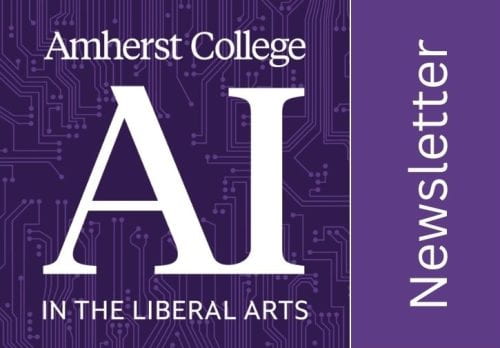“If you’ve created a conscious machine, it’s not the history of man. That’s the history of gods.” – Caleb, Ex Machina (2014)
Upcoming Events
AILA’s Spring Learning & Discussion Series
AI and Creativity: What Matters for Human Writers | A Conversation with Naomi S. Baron
Tuesday, Feb. 20th @ 4 pm; Zoom Event
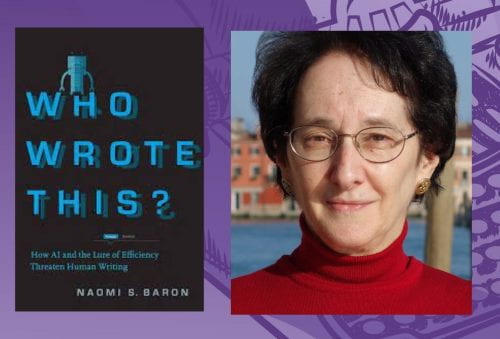
For writers, as well as teachers and students of writing, the rapid development of Generative AI raises profound questions about the value of humanist writing processes. Join AILA and the Writing Center for this virtual event featuring Naomi S. Baron, author of Who Wrote This? How AI and the Lure of Efficiency Threaten Human Writing and Professor Emerita of Linguistics at American University.
In this highly interactive session, Professor Baron will build on her discussion of creativity from her latest book, incorporating developments over the past year, with a focus on the realm of writing. Facilitated by Jessica Kem, director of the Amherst Writing Center. The event is open to students, staff, and faculty throughout the Five Colleges. Click to learn more & RSVP for a Zoom link.
2024 NYU Stern Fintech Conference
Living Large: The Latest on AI in Finance
8:30 AM-12:05 PM EST | Friday, March 1, 2024 | VIRTUAL WEBINAR
The growing use of AI in the Financial sector is something we as interdisciplinary thinkers at AILA are watching closely. This conference from NYU | Stern is one way we plan to stay connected to the front lines of Financial Technology (Fintech) and learn about the potential risks and consequences of the use of AI in Finance. We are particularly excited for the Conference Keynote speaker, Joy Buolamwini, a pioneer of justice and oversight in the tech sector. Read more about Dr. Buolamwini and her latest book UnMasking AI below!
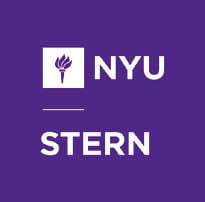
Celebrating Black History Month
In observance of Black History Month, AILA would like to highlight some of the most influential Black leaders in the field of Artificial Intelligence today.

Joy Buolamwini
Joy Buolamwini is the visionary researcher behind the Algorithmic Justice League. Her insightful writings have appeared in Time, The New York Times, Harvard Business Review, and The Atlantic. Known as the Poet of Code, Buolamwini uses her artistry to shed light on the societal implications of artificial intelligence and offers guidance to global leaders on mitigating AI-related risks. Her pivotal research at MIT on facial recognition technology gained notable recognition in the Emmy-nominated documentary “Coded Bias.“
Featured AI News
It’s hard to keep up with all the AI-related News these days, but here are a couple stories that have us thinking and discussing. Let us know what AI News stories have you riveted!
OpenAI Announces Generative Video Model
OpenAI has announced Sora, a groundbreaking text-to-video generation model that can create videos up to one minute long from textual prompts. This model is capable of generating complex scenes with accurate details and an understanding of how elements exist within the physical world. Although the full model is not yet public, initial tests suggest that Sora is a robust and effective model for video generation. Read the announcement and report!


FCC Bans AI Robocalls
The Federal Communications Commission (FCC) has recently made a unanimous decision to ban AI-generated voices in robocalls, citing concerns over election disinformation and consumer fraud facilitated by the technology. The decision follows a phony call made to sound like President Biden, which alarmed election security officials nationwide. The regulation empowers the FCC to fine companies that use AI voices in their calls or block the service providers that carry them, with potential fines of more than $23,000 per call. The FCC’s action is a warning shot to scammers not to use cutting-edge technology for fraud or to spread election-related disinformation. Read more here and here. |
Microsoft and OpenAI Publish Findings on Hackers’ Use of AI
Microsoft and OpenAI have recently published research revealing how threat actors are using AI, particularly large language models (LLMs), to enhance their cyberattacks. The research highlights specific instances of nation-state threat actors leveraging AI technologies to refine and improve their malicious activities. While the research has not yet identified unique AI-enabled attack techniques, it emphasizes the importance of staying ahead of evolving threats and outlines a multi-pronged approach to combatting malicious state-affiliated actors’ use of AI platforms. Read OpenAI’s blog post and Microsoft’s report!
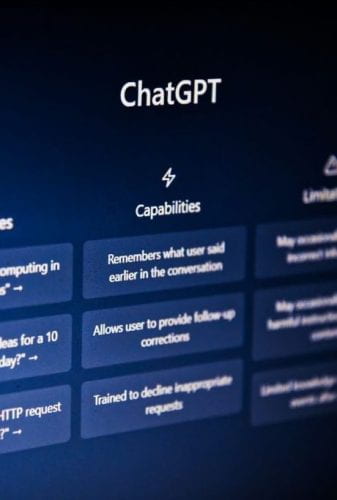
AILA Recommended Reads
Engaging an interdisciplinary community of participants in discussions and activities about AI requires we stay in the know. Check out some of the books our AILA Team is reading and discussing together.
Unmasking AI: My Mission to Protect What Is Human in a World of Machines by Joy Buolamwini (Random House, 2023)
This book is a critical exploration of artificial intelligence’s pervasive influence on our daily lives. It highlights the urgent need to safeguard human values and ethics amidst rapid technological advancements. Its compelling narrative, built from personal insights, research findings, and real-world examples, illustrates the challenges of ensuring AI technologies serve humanity’s best interests without compromising individual rights and societal norms. Buolamwini advocates for a future where AI is developed and deployed with a conscientious approach, emphasizing transparency, accountability, and inclusivity in the digital age to protect the essence of our humanity.
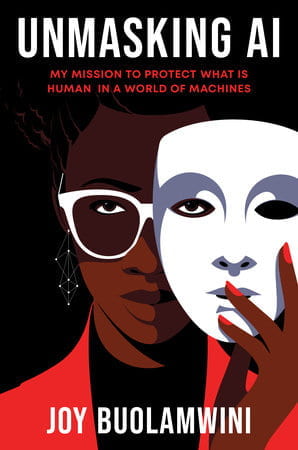
Featured AI Tool
Our AI Mentorship and Tools team is always exploring new applications of AI. Here we feature some of our favorites. Please explore these tools freely with your personal account, but be mindful of bias, accuracy, content ownership, and use of personally identifiable information with these tools. Institutions are evaluating the use and configuration of AI-based tools, so please check with your IT department before using these tools with college or institutional systems or data.
BlackBox AI is a leading AI-powered programming assistant. Ask it any question relating to code, and BlackBox AI will provide you with the code and explanations you need in plain English. It is capable of assisting with multiple programming languages and frameworks: HTML to Python, XCode to Android, Azure to BitBucket. Users can also create their own chatbots! All you have to do is provide it with a knowledge base in the form of a website URL. Your chatbot will use this website to inform its answers. BlackBox AI is a must-have tool for any programmers or code enthusiasts.
BlackBox is maintained under Course Connect Inc. and is committed to protecting personal data and the GDPR. Users can view and delete any personal information that they may have. Try it here!
Security and Privacy Rating: 


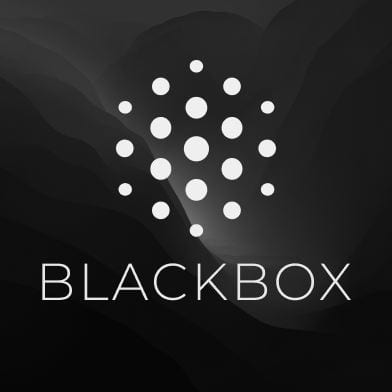

The Artificial Intelligence in the Liberal Arts initiative at Amherst College aims to engage a broad, interdisciplinary community of participants in discussions and activities related to artificial intelligence, exploring and facilitating multi-way interactions between work in artificial intelligence and work across the liberal arts. Our newsletter contains the latest AI-related events, tools, scholarship, and news in AI.
